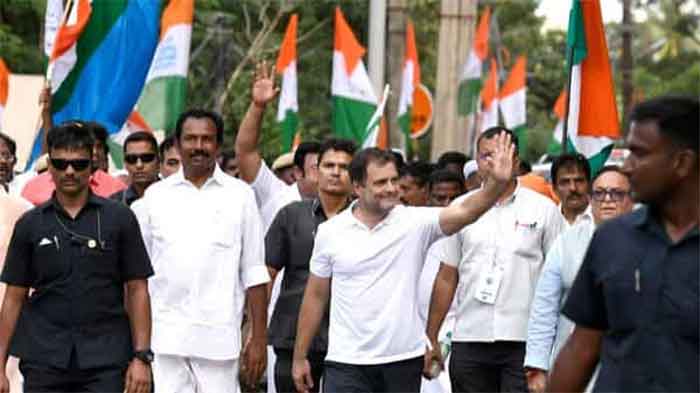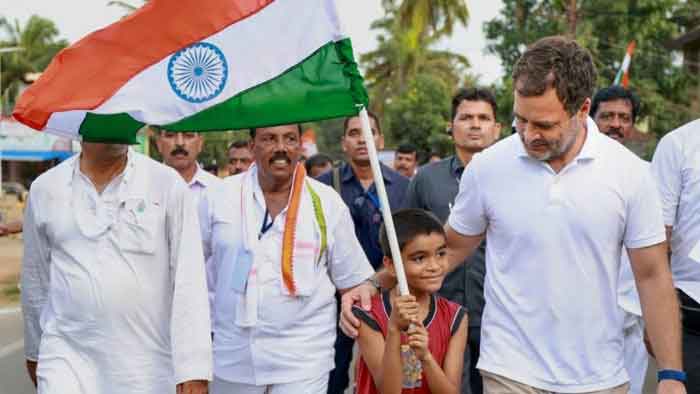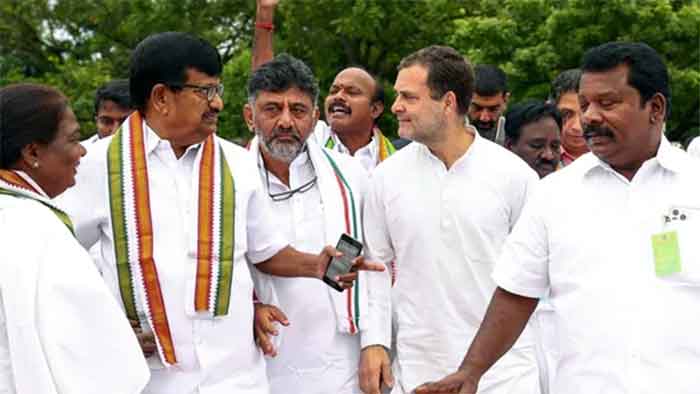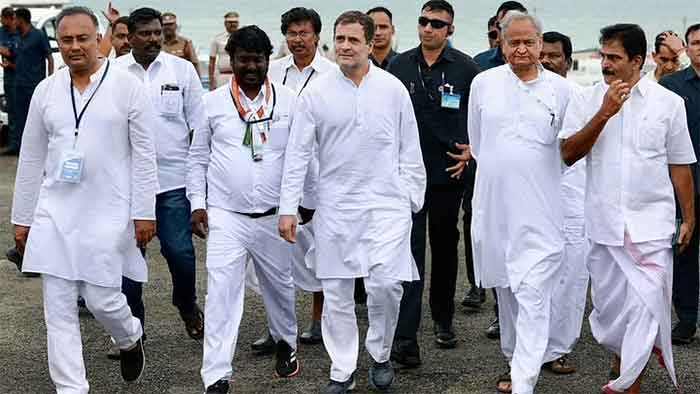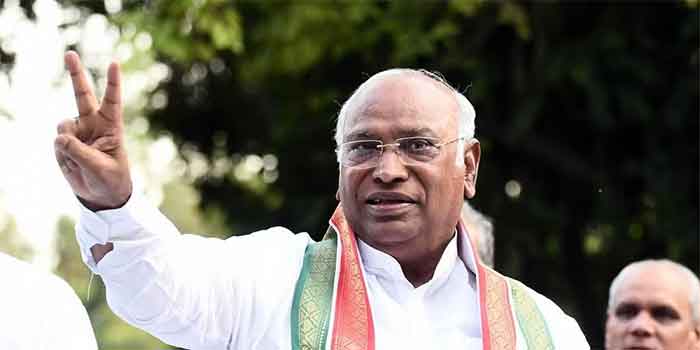
In the recently held elections for the post of President of Indian National Congress, Mallikarjun Kharge, a veteran Congress leader with vast experience in the political life was elected. He is third dalit to occupy this prestigious post. These elections have taken place in the party after nearly 24 years. It is interesting that in India barring the Communist parties, most other parties’ posts are held by the nominated politicians and most of these have dynasties. Though BJP is a strong critic of dynastical rule of the Congress, BJP itself is full of dynasts. It is the only party whose major controls are in the hands of RSS appointed organizing secretaries. It is generally the RSS, which has major say in the running of BJP.
Congress has been heavily criticized for the domination of Gandhi’s in the affairs of the party. One also recalls that in 2004 Sonia Gandhi was opposed tooth and nail when she was leader of the Congress party and logical choice for the PM post. Loud voices from various quarters shouted hoarse about her foreign origins. Most of these elements who talked of ‘foreign origins’ of Mrs. Gandhi are over joyous when Rishi Sunak has become PM of Britain.
Kharge is taking over the President ship of the grand old party, when the challenges are immense and the divisive elements are dominating the scene in the political arena as well as in various components of the state machinery. For example the University Vice Chancellors and Faculty members are recruited mainly for their ideological commitment to the right wing ideology rather than for their academic merit. It is the time when on most of the fronts the people of the country are writhing in pain.
Globally speaking India’s ranking in hunger index, press freedom, democratic liberties, freedom of religion is having a free fall. The economic plight of the average people of the country is abysmal, with rising prices, rising unemployment and worsening plight of farmers. Many international agencies are warning about the rising atrocities against minorities, needing international monitoring. Gregory Stanton, the expert on studies on genocide is also giving the warning signals as far as minorities are concerned.
It is in this background that he as the leader of biggest opposition party faces massive challenges to defend and then to strengthen the values on which Congress was founded. One recalls that formation of Indian National Congress in 1985 was in the aftermath of many modern associations like Bombay Association, Madras Mahajan Sabha, Pune Sarvajanik Sabha, meeting in Kolkata in 1883 and articulating the need for a political platform to reach their voice to the British for political demands. These demands related to facilities for Industrialization, land reforms, starting of centers of ICS exams in India, to increase the participation of Indians in the administration.
Lord Hume acted as the crystallizing force and the associations, yearning for more political space formed Indian National Congress. It was above the narrow considerations of religion, caste and region. In due course women also became part of the process. Congress President’s post was very important and Muslims (Maulana Azad), Christians (W.C. Bonnerjee) Parsis (Dadabahi Noroji) adorned this post and gave the inclusive shape to the party. Its initial leaders Lokmanya Tilak, M.G. Ranade, Gopal Krishna Gokhale laid solid foundations by articulating democratic values and petitioned against the high handed policies of the colonial rulers.
With coming of Mahatma Gandhi, mass movements were launched which united the people and in these movements were the major factors which forced the British to leave India. Gandhi’s talisman, to keep the interests of last person in the line in mind, became a sort of guide for the policies of this party. Unfortunately due to global pressures some economic policies had to be brought in which pushed back the interests of the poor. Still in UPA I and II, the people oriented, Right to information, Health, Education etc. were introduced as policy markers. Social movements and progressive forces could get some space for social welfare policies.
The applecart was upset with in introduction of identity politics. The anti reservation riots of 1980 and 1986 gave the warning of shape of things to come. The opposition to affirmative action, particularly after Mandal Commission implementation surfaced in the form of Rath Yatra of Advani followed by demolition of Babri Mosque. These sowed the seeds of division on religious lines. Adding to this the issues like Beef-Cow, Population balance, Ghar Wapasi, attack on freedom of religion heavily undermined the fraternity nurtured through our syncretic traditions and culture, and further promoted by inclusive freedom movement.
Recent Udaipur Convention of the Congress Party (2022) seems to be the turning point and has the potential of restoring fraternity, the core values of preamble of our constitution and other prerequisites for development in the country. The infiltration of communal elements in our administrative structure is equally worrying. When Kharge is taking over as the President of this party, already one of the tall leaders of the party Rahul Gandhi is on the Bharat Jodo (Nafrat Chodo) yatra. This is turning out to be the cohesive movement, giving hope to the people for an India of the dreams of Gandhi, Patel, Nehru, Subhash Bose and Ambedkar. The issues being raised by this yatra are the one’s which need to be nurtured and promoted. The subtle attacks on our Constitution also need to be opposed and the inclusive spirit of Constitution needs to be restored.
The new President must be realizing the need for the opposition unity on the principled ground. These principles are the one’s related love and amity, Peace and Harmony. The opposition unity can be sewed by committing to economic policies which take care of the needs of the average people of the country. The unity has to be on the grounds which give dignity and respect to all the people of the country. One can just hope and wish the Bharat Jodo Yatra on one hand and election of Kharge on the other will fulfill the aspirations of the people of India suffering at the hands of divisive politics, the politics, whose policies are oriented towards the interests of Corporate and Communal elements.


